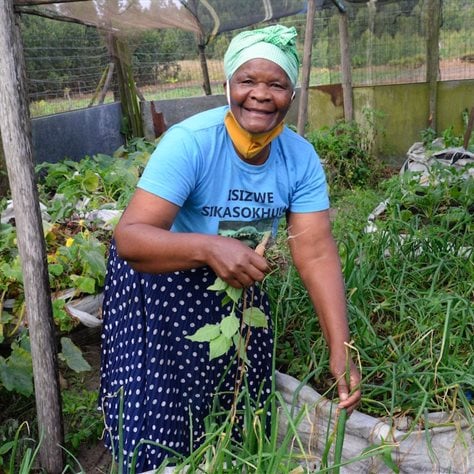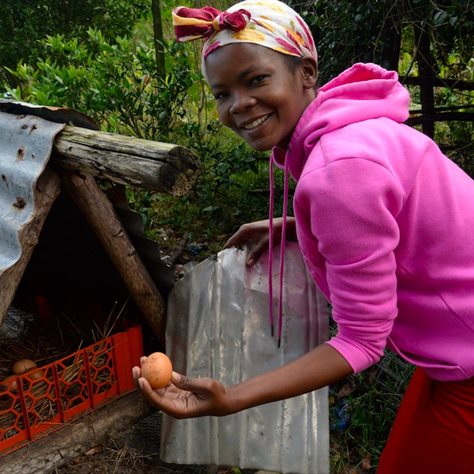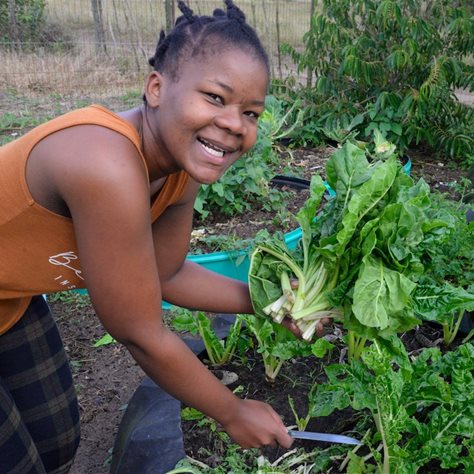
Top stories





ESG & SustainabilitySouth Africa’s carbon tax should stay: climate scientists explain why
Britta Rennkamp et al. 42 minutes

More news

















This is an impressive number, given the limited work opportunities for the rural youth and women in particular and a number which becomes more significant on 15 October, the International Day of Rural Women. On this day the United Nations pays tribute to and acknowledges the remarkable role that women play every day, not only as breadwinners, but also for the pivotal role they play in agricultural production, food security and nutrition. A fact made even more significant this year with the theme of ‘Rural Women Cultivating Good Food for All’, which highlights how hunger, malnourishment, and food insecurity are rising in many parts of the world, with some 2.37 billion people not having enough to eat in 2020 – a 20% increase on the previous year.
To this end, Sappi is leveraging opportunities to provide emerging farmers with access to land for produce. For us, this makes sound business sense and is a good example of shared value: Supporting agricultural projects not only empowers others, it also enables us to investigate our own expansion into supplementary agri-business opportunities, by using these pilot projects as a testing ground for the market.
One such example is the peanut farming venture started by a group of women on our land. In 2018, Ntombiyenkosi Mbuyazi and four other women started planting peanuts on a newly planted Sappi compartment close to her community at Shikishela in Mtubatuba, in northern KwaZulu-Natal. Since then, Sappi has made more land available and sponsored seeds, and currently there are 20 participants in the Palm Ridge project area.
This project is an excellent example of creating a win-win, because whilst we provide free access to our land, earning the participants some profit during harvest time, the costs for Sappi’s weed control activities are reduced, with the participants routinely doing weeding while they plant. So, besides keeping the plantations weed-free, the roots of the peanut plants also help to enrich the soil with nitrogen for the trees.
Through Sappi’s Enterprise and Supplier Development (ESD) Unit, the project participants are being assisted to register the business as a cooperative, with the main goal to ensure sustainability of the project through taking advantage of opportunities including funding and securing the market so that it may grow and contribute to financial gains for the participants and their families. “The women here are very proud of this project, and they have much to celebrate. With money made from this initiative of planting groundnuts, we are able to pay our children’s school fees,” says Mbuyazi.


Another example of a young woman who is contributing to food security in her community is Ziningi Mazibuko, from Mphithini near Bulwer in KwaZulu-Natal. With her ABCD training she obtained thanks to Sappi’s Abashintshi programme, and with advice from extension officers from the Department of Agriculture, she is assisting the Mphithini Cooperative with admin duties and sourcing markets for their produce. The cooperative operates with 11 members, focusing on agriculture production specialising in sugar beans and maize production.
“Because the youth generally consider farming as being something for the older generation, they do not consider the potential there is in the agriculture field,” says Mazibuko. “I want to change that mindset and show them that by being part of these community initiatives and by becoming commercial farmers, they will secure futures for themselves.” Besides promoting the plans of the cooperative, which results in job creation and contributes to economic growth in the area, this venture supports overall food security in the area and the country at large.
Sappi’s most enduring example of multiple rural women participating in and contributing to livelihoods and unlocking the potential of the land, are the women in the Sappi Khulisa programme. This enterprise development scheme sees growers using their land for planting eucalyptus trees, where we provide sponsored seedlings, technical advice and training and provide guaranteed access to the market, by buying the timber at market-related prices.
As trees have a long growing cycle, the Khulisa growers are encouraged to use their land for producing other crops for the sustenance of their families, but also to participate in co-operatives to scale up vegetable and poultry production for greater distribution and resale. Through collaboration with a local service provider, Sappi has sponsored the training of numerous families in honey farming in the Zululand area and at least 30 of these are women who have also been trained in managing tower gardens for vegetable production, as well as poultry and egg production.
Read more about these and other initiatives here Sappi Southern Africa Corporate Citizenship Report | SDG 1 (sappi-ir-reports.co.za).